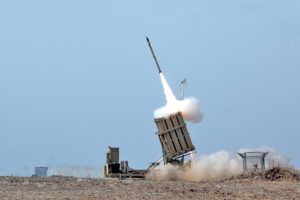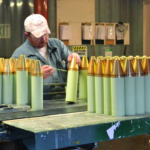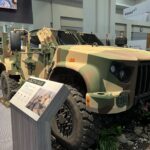
The two Iron Dome air defense batteries the U.S. is providing to Israel are “in transit” right now, an Army official confirmed on Tuesday, noting the systems are being leased from the Pentagon for 11 months with an option to buy the capabilities at the end of that period. Doug Bush, the Army’s top acquisition official, told reporters that leasing the Iron Dome systems to Israel for a “relatively small amount of money” under a Foreign Military Sales case was…

 By
By 











